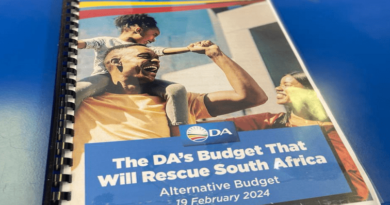Relief-from-distress beneficiaries have not received April, May payments
A cohort of civil society bodies has accused the Department of Social Development (DSD) of failing to distribute the R350 Social Relief of Distress (SRD) grant for the months of April and May, leaving over 10 million beneficiaries high and dry.
In a joint statement released on Tuesday the groups – including Amandla.mobi, Black Sash, the Institute for Economic Justice, #PayTheGrants and the Social Policy Initiative – expressed frustration at the situation.
Read: Covid R350 grant to be paid from mid-June
They say because the SRD grant beneficiaries tend to have at least two dependents, government’s failure to distribute the estimated sum of R8 billion owed to beneficiaries threatens the welfare of almost half of the country’s population.
Civil society has referred to government’s failure as a “scandal and a national disgrace”.
“I’m from Eldorado Park where most people are unemployed and [the] R350 SRD grant has been their lifeline,” says Elizabeth Raiters of #PayTheGrants.
“Most of these people now go to different extensions wherever there is a feeding scheme on that day. Sometimes they go more than two days with no food.”
The SRD grants were first introduced at the height of the Covid-19 pandemic during the National State of Disaster established under the Disaster Management Act. Initially, the grant was a temporary solution and earmarked by government to run for the months of May to October 2020.
However, following intense lobbying by civil society groups around the need for the financial assistance by millions of poor people devastated by the impact of the pandemic, government committed to several extensions of the grant.
The latest extension was announced in February by President Cyril Ramaphosa during his State of the Nation Address, where he committed government to paying out the grants until March 2023.
Outcry
Apart from criticising government for not distributing the necessary payments to over 10 million beneficiaries, civil society groups have also accused government of excluding a large pool of potential beneficiaries by changing the eligibility criteria for the grant.
Government’s new regulations dictate that to be eligible for the grant, one needs to earn less than R350 a month, a significant drop from the R595 threshold previously stipulated.
“Under these new regulations, hundreds of thousands of grant beneficiaries may now find themselves disqualified from assistance they have relied on to survive,” say the groups.
“Treasury and the DSD have placed a significant number of the most vulnerable in a precarious and inhumane position.”
Civil society has also criticised the application process that beneficiaries are subjected to, complaining about language barriers which restrict non-English speaking applicants from submitting applications on time.
Read:
Post Office no longer paying R350 grant
Seven million people have applied for the R350 grant in a week
New SRD grant regulations ‘will see many existing beneficiaries being excluded’
Another challenge cited by the organisations is the need for applicants to submit their applications online, despite the context of a vast digital divide in South Africa.
“In our back-and-forth with Sassa [South African Social Security Agency] trying to understand how the R350 grant now works under the new framework, it was clear that it now excludes even more people who need it,” says Amandla.mobi’s Tlou Seopa.
“Anyone who gets an amount of over R350 in their bank account, regardless of where that money came from, is simply not poor enough to qualify for the grant.”
“What we are hearing from recipients is constant confusion about who qualifies for the grant. More than heartbreaking, the conditions of qualifying for the grant have become inhumane. The state is continuously failing the people,” she adds.
Delays
According to the groups, government’s inability to deliver the grant payments on time is due in part to National Treasury not signing agreements with the country’s banks, which will allow government to verify the income status of the applicants.
“Given that the new regulations relied fundamentally on the facilitation of the banks, it is shocking that the details were not worked out with the banks, and agreement obtained, before they were gazetted,” say the organisations.
Read: Social relief grant will be impossible to withdraw – Sachs
“This means the unreasonably low threshold driven by austerity has created an administrative hurdle further delaying payments.”
The bodies have called on government to rectify the situation, putting forth several demands, one of which is for an increase to the income eligibility threshold from R350 to R624, in line with the current poverty line.
Another demand is for government to remove the clause forcing beneficiaries to reapply for the grant every three months.
Other demands made include:
- An immediate lifting of the budget cap of R44 billion to cater to all who qualify for the grant;
- To reinstate Post Office branches as outlets to receive the R350 grant;
- Immediately approve and pay all outstanding beneficiaries, including those who were approved for the grant last year and have still not received their payment;
- Identify the causes of broken and inefficient administration processes, and find speedy and practical solutions to rectify these;
- Increase Sassa’s capacity to administer the SRD grant effectively and timeously; and
- The President, together with DSD, Sassa and National Treasury, to engage immediately with civil society stakeholders to develop a policy plan to replace the SRD grant with permanent social assistance for the unemployed working towards a universal basic income grant of, at minimum, the upper bound poverty line.
Read:
Ramaphosa advisors divided over implementing basic income grant
A universal basic income grant isn’t the solution
Source: moneyweb.co.za



